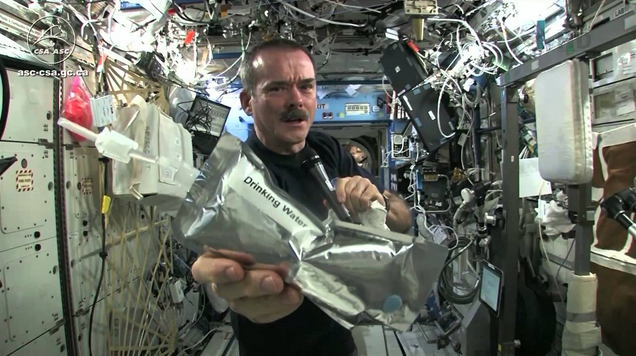Russian cosmonauts do not drink water obtained from the urine of the crew

Screenshot from CSA video about the ISS treatment plant
For several decades, NASA has been developing a system that processes the body fluids released into drinking water. Scientists have achieved some success, but members of the crew of the ISS from Russia do not use the water obtained after cleaning the urine, reports The Guardian .
To ensure all that is necessary for the life of the crew, huge amounts of money and effort are spent. Almost everything to orbit is delivered from Earth by cargo ships and increasing station autonomy with subsequent reduction in costly supply flights is one of the priorities of scientists. The installation, delivered to the ISS, makes it possible to produce up to 6000 liters of water per year from waste products, that is, processing, including urine, into drinking water and its subsequent use would reduce the volume of deliveries to orbit by 63%.
It should be noted that not only urine is used - absolutely any liquid is used to obtain drinking water: perspiration, condensation from breathing, water used for washing, and now urine. But Russian cosmonauts refuse to use water made from urine, unlike their Western colleagues, who claim that it does not differ in taste or smell from that delivered from the surface of the planet, and is even better in the degree of purification. Absolutely all of the urine is recycled, including from the Russian segment of the station, but astronauts do not consume it, yielding this water to foreign colleagues.
')
A NASA video in which a Japanese crew member of the ISS talks about a wastewater treatment plant.
One of the problems in creating this setup was, as is often the case, microgravity. On Earth, the water can be cleaned simply by evaporation, but in the absence of sufficient force of gravity, the heavier elements that pollute the water are inseparable from water - they do not settle during evaporation. But NASA managed to cope with this problem and the equipment delivered to orbit successfully processes up to 93% of the released fluids into drinking water, and its quality is quite comparable with the rather stringent requirements for drinking water on the planet.
Source: https://habr.com/ru/post/368091/
All Articles